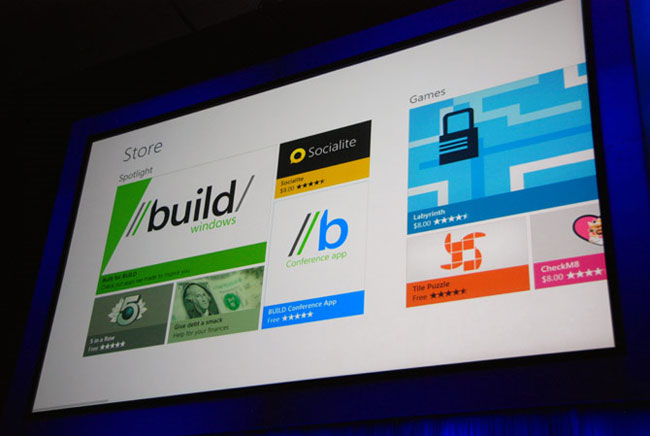The reasons why Windows 8 failed
Windows 8 is considered a focal point in this year's technology village and is an ambitious step for Microsoft to replicate the dazzling success of Windows 95. However there are many reasons why experts worry about fate. of Windows 8.

1. Foolish touch
Microsoft spent a lot of time, effort and money to create Windows 8 - the touch-enabled operating system but users can still use the keyboard and mouse. This operating system has important functions such as Start Screen and many built-in built-in applications so that users can work with both fingers and mouse cursor as they are now.
But it seems that Microsoft is betting that touch (tablet) will be a key feature in Windows 8 and put too much faith in a device like the iPad. This is really worrying. The tablet has been more than a decade ago with a unique style / pattern, but every new model has been "faded" over the years.
In fact, it's the iPad market but doesn't mean an open market for tablets in general. Typically the resounding success of the iPod music line. Many companies find the iPad too successful and think there will be a more open market for MP3 players. However, many companies have lost a lot of money to pursue a faded market. That's just a warning story.
On the other hand, original device manufacturers are difficult to incorporate touch on desktop and latpop because of the cost. Maybe, they will divide between a cheaper keyboard / mouse system and a more expensive touch system, but the problem is that OEM will take a long time to switch to high-end systems.
2. Confusion of hardware
The Windows 8 operating system will support ARM hardware and Microsoft has said that computers that use ARM hardware will be explicitly branded so that users are not confused with Windows 8 on the x86 / 64 platform. However, whether two different versions of Windows function on two different hardware platforms cause confusion for users. Like 32-bit and 64-bit versions, it has been confusing for users since Windows XP version.
3. The PC market collapsed
The PC market is under intense pressure from other computing devices such as smartphones and tablets. While this segment is not erased immediately, they are losing market share. That means that when PC sales decline will lead to a drop in Windows sales.
Therefore, the biggest problem with PCs today is that they don't look attractive. Even new PCs like ultrabook are basically PCs and consumers smart enough to realize that (but they're still not smart enough to know the difference between Windows versions). There are many new, outstanding and sexy features drawn in the eyes of consumers, but unfortunately for Microsoft, many of Windows 8's features are available in Android or iOS.
4. App App ecosystem is also a problem
In order for a platform to grow and succeed, a thriving application ecosystem is needed. iOS and Android are typical examples. Platforms with no ' back support ' ecosystem will fail. Typically, HP TouchPad tablet.
Microsoft has put a lot of emphasis on Windows 8's ability to run applications on the Windows Store app store. However, the application for ARM platform comes from the Windows Store. Therefore, if Microsoft does not create an easy-to-use app store such as Apple's App Store, Windows 8 may be ' buried '.
However, an application ecosystem is more successful than an easy-to-use application store. Users need applications and Microsoft has discovered that it is hard to convince developers to move to a new platform, especially when it is unclear whether the platform will succeed.
5. The reaction of the business
In every business day, it must be "austerity ", there is no reason for them to throw a lot of money to train employees to get used to a new operating system, even if they have a user interface. new and touch utilities.
On the other hand, business customers do not see the appeal of touch on this operating system compared to actual demand.
Therefore, business customers will not rush to spend money to replace traditional systems using mice and keyboards with touch systems. So maybe they will think to ignore Windows 8 to wait for Windows 9.
You should read it
- ★ 8 new features users want to see in Windows 12
- ★ Will Windows Phone 8.1 Developer Preview be downloaded on April 10?
- ★ Microsoft proves Windows 10 computers are vulnerable to hacking to advertise Windows 11
- ★ A series of new features confirmed by Microsoft will be available on Windows 11 later this year
- ★ 5 reasons to expect Windows 8